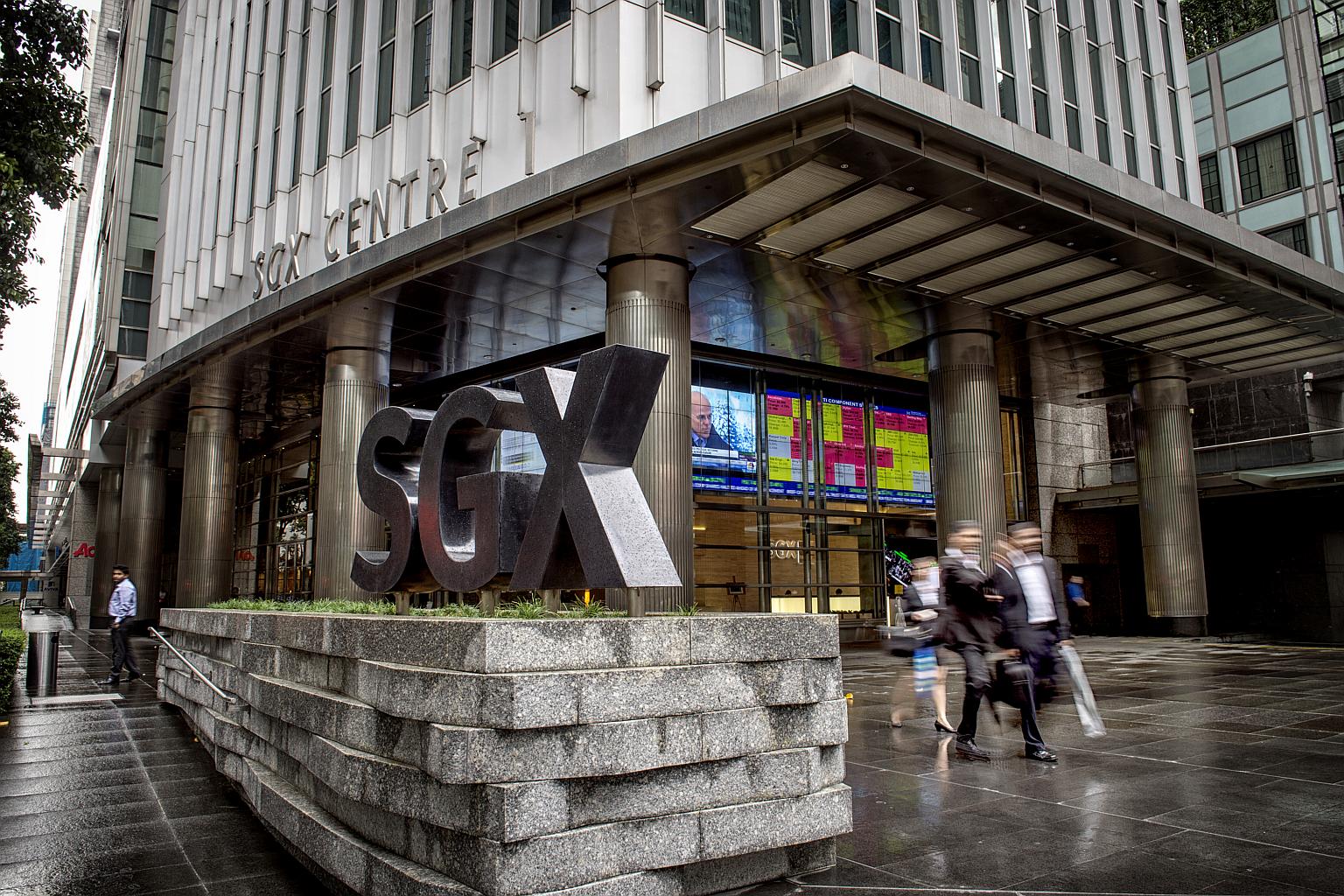Singapore stocks tumble 1% on opening, Asia markets extend losses as China woes spread
Sign up now: Get ST's newsletters delivered to your inbox

Pedestrians walking past the SGX Centre in Singapore.
PHOTO: BLOOMBERG
TOKYO (REUTERS, BLOOMBERG) - Asian equities suffered more losses on Thursday as concerns over China's market turmoil spread, while the safe-haven yen shot to a seven-week high as global risk appetite ebbed.
China's benchmark Shanghai stock index opened down 2.13 per cent, also extending falls from a day earlier, despite more government moves to avert a market collapse.
The benchmark Shanghai Composite Index lost 74.74 points to 3,432.45 while the Shenzhen Composite Index, which tracks stocks on China's second exchange, fell 1.05 per cent, or 19.76 points, to 1,864.69.
Hong Kong shares fell 0.34 per cent as the rout in mainland China spreads through regional markets.
The Straits Times Index fell 33.39 points, or 1.02 per cent, to 3,251.60 five minutes after trading opened. It was recovered a bit to be down 0.83 per cent at 3,257.84 at around 9:45am.
MSCI's broadest index of Asia-Pacific shares outside Japan shed 0.2 per cent, hovering near a 17-month low struck the previous day.
Japan's Nikkei lost 2.59 per cent as the yen shot up, Australian shares was down 0.3 per cent and South Korea's Kospi fell 0.9 per cent.
The focus in Asia again turned towards how Chinese stocks would fare later in the session, with a series of increasingly aggressive attempts by authorities so far having failed to stem the massive exodus from a once booming market.
The country's stock markets have plunged nearly 30 per cent over the last three weeks.
"Fundamentally, China is coming back to a point of attraction -the monstrous P/E ratios have come back to more realistic levels. However, the bursting bubble means value is unlikely to factor into thinking in the interim. The repercussions haven't completely played out yet," Evan Lucas, market strategist at IG in Melbourne, wrote.
China is unveiling market support measures on an almost nightly basis as it seeks to arrest a selloff that has erased more than US$3 trillion of value in the past few weeks and quashed demand for risk assets globally. Its securities regulator took the drastic step late on Wednedsay of ordering shareholders with stakes of more than 5 per cent from selling shares for the next six months in a bid to halt a plunge in stock prices. Chinese inflation data is due Thursday, with sellers locked out of 72 per cent of the market amid trading suspensions.
US shares slid sharply overnight on growing fears that nose-diving Chinese shares could destabilise the world's second- largest economy and have global implications. The Federal Reserve registered concern over China as early as last month, with meeting minutes, released Wednesday, signaling potential risks to the U.S. from there and Greece.
The doom-and-gloom mood - already heightened earlier in the month by prospects of Greece leaving the euro - benefited the yen, often sought in times of economic uncertainty.
The US dollar stood little changed at 120.815 yen, within reach of a seven-week low of 120.41 touched overnight when it suffered a bruising 1.5 per cent fall.
The greenback was weighed down further as US Treasury yields continued falling on flight-to-safety bids and new signs that the Federal Reserve may be hesitant about raising interest rates, as shown by their policy meeting minutes.
The dollar's tumble against the yen helped the euro, which climbed to US$1.1075, pulling further away from a one-month trough of US$1.0916 plumbed on Tuesday.
Commodities, far from immune to the slide in global equities, remained subdued. U.S. crude nudged up 0.4 per cent to US$51.86 early on Thursday but has shed nearly nine per cent so far this week.


